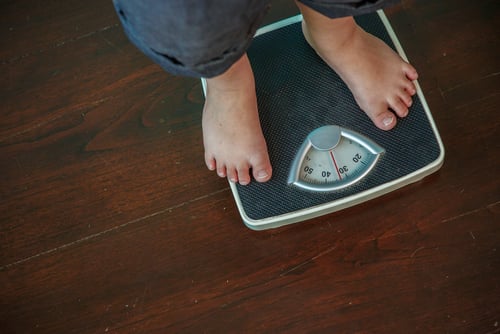About the "F" Word: Taking "Fat" Out of Your Teen's Vocabulary

American society places extraordinary pressure on how a person looks and their body weight. While many people think this applies only to teenage girls, adolescent boys also feel pressure to conform to society's expectations. It is becoming extremely important for teens and their families to practice body positivity and eating disorder awareness. Doing so can prevent your teen or loved one from turning to an eating disorder or substance use to cope with their negative body image. If your teen has already turned to these adverse coping mechanisms, turn to Stonewater Adolescent Recovery Center. Our family recovery support program can give your family the tools you need to heal. To learn about our services, please contact Stonewater Adolescent Recovery Center today at
662.373.2828.
How Body Shape and Size Influence Small Children
Deciphering the difference in physical form is part of development in young children. Baby toys with different shapes are cognitive tools for helping children begin to create a greater encyclopedia of knowledge in their minds. Fitting the triangle toy into the triangle shape hole, the square to its proper place, and the circle to its own as well are educational tasks for a baby to do for fun. These activities help develop their cognitive function for surviving in the world. As babies develop, differences in shape, size, and color start to take on a different meaning. People, for example, are no longer simply other beings like themselves, walking and talking. Due to the cues that they pick up from society and, most importantly, what they hear from their parents, young children begin to see black and white, beige and brown, ugly and beautiful, and skinny and fat. As soon as three years old, small children can notice the difference in body shape and size. By five years old, children are becoming more in tune with culture, learning to make the same associations the world around them does. For example, small girls are aware that some little girls are pretty and that their appearance garners positive attention. Most children start to learn the difference between being big and small, thin and fat, and what being each of those things mean, like, being fat might mean being unhealthy, lazy, or not a good person.How Body Image Influences Teens
Body image and eating disorders are not a concern only for adolescents and simultaneously insecure and self-obsessed. Brisbane Times reports that in Australia, where one out of every 24 adults struggle with an eating disorder, children as young as seven are hospitalized for eating disorders and body image issues. Seven is too young to have any awareness that there is a harmful dichotomy in the body and how society views body types. Professionals suggest that lessons about body positivity and body acceptance are now more critical than ever.Eliminating Fat Talk
One of the most effective ways to create positive body conversation in the household is by eliminating "fat talk." "'Fat talk is when people criticize their own or other people's bodies, including celebrities' bodies," the article explains. "It can add to the pressure to be thin and help drive body dissatisfaction." Fat talk may already be present in your adolescent's daily life. Many discussions at school and interactions on social media can center on these ideas. Some parents may notice an emphasis on comparing body types, describing people primarily by their body, comparing one's body to someone else's, or perceived value based on physical appearance. If this is the case for your son, it is essential to talk with him. Eating disorders have the highest rate of death among any mental illness. In addition, they can lead to substance abuse to cope with difficult emotions and control weight.Contact Stonewater Adolescent Recovery Center Today
Stonewater focuses on helping clients build a foundation of faith, hope, and trust. Through our treatment programs, teen boys can learn that they have a unique personality and purpose. Our residential treatment programs for adolescent boys' addiction bring the family together to heal mind, body, and spirit. We offer a treatment program for eating disorders and substance use issues using treatment options such as:- Cognitive behavioral therapy (CBT)
- Dialectical behavior therapy (DBT)
- Yoga therapy
- Fly fishing therapy
- Family therapy

.jpg)

